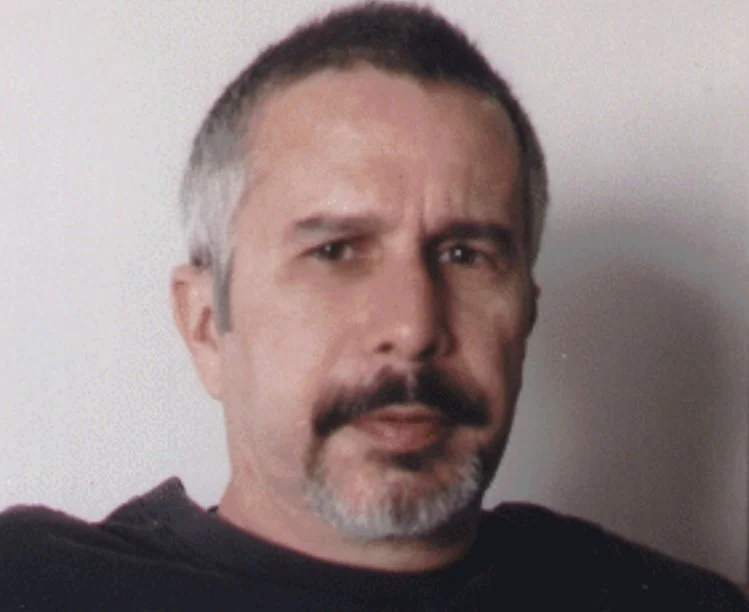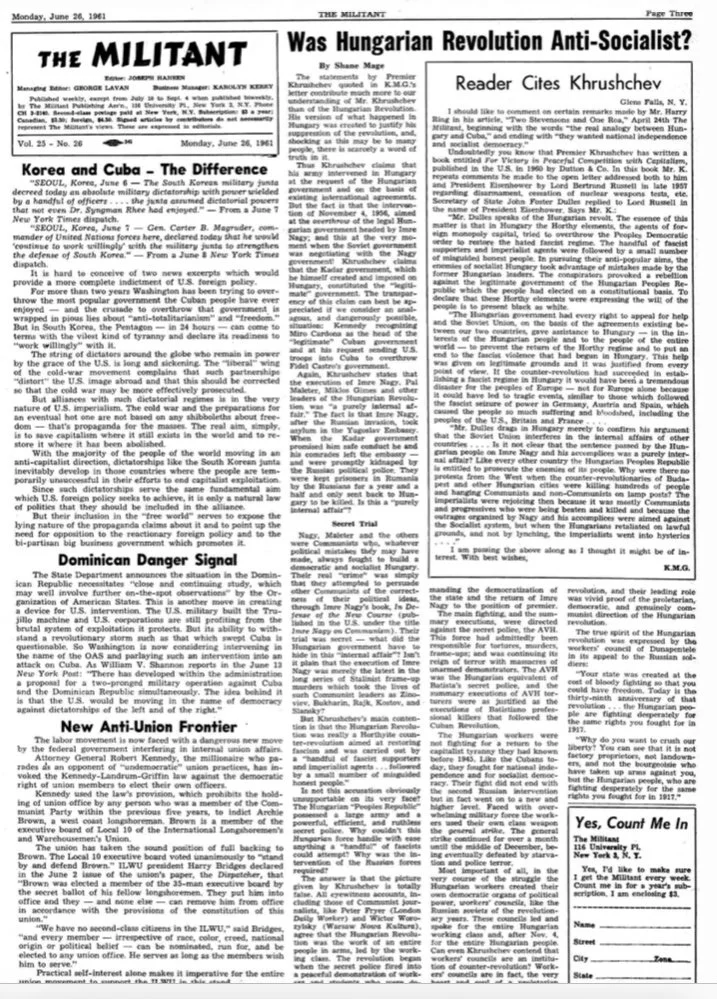By Amaury Rodriguez
May 5, 2022
Ukraine, Santo Domingo. Hanoi. The peoples’ resistance as history in the making and history repeating itself. The suffering en masse in the burnt cities. The silent accomplices. The mothers crying. O Mariupol, mon amour. O Hanoi. The ugliness of war. O Santo Domingo. I love you Kiev. Mon amour Port-a-Prince. I love you Damascus. What’s in a name? Those brutalized eyes you left on the road. That you thought dead. Mariupol, that’s me.
Whose history?
Another anniversary of the 1965 US military aggression against Santo Domingo has arrived. The Caribbean republic where I was born and where ordinary people resisted a mighty empire. What is the meaning of this history of resistance? My aim is to go beyond national borders in order to reframe, if I may, this history of resistance as internationalist in outlook. A link in a larger chain of events. My history, on both a personal and political level, and that of others because the fight in defense of sovereignty and life itself revived anti-imperialist politics worldwide.
Indeed, the revolutionary events of 1965 in the Dominican Republic made—despite shortcomings and ultimate defeat at the hands of a powerful imperialist army—re-frame and re-assess history, geopolitics, the correlation of forces, the role of the working-class, theories of revolution, permanent revolt, spontaneity, solidarity among others. With that in mind, both Dominicans and non-Dominicans will find alternative and radical perspectives about Dominican, Caribbean and Latin American history in the myriad publications produced by the American Left in the period prior, during and after the 1965 April revolution and subsequent US military intervention. The archive exists, it is full of gems, but the work needs to be done. I start with the premise that in order to understand the mindset of the American Left, we begin by looking at the lives of those who shaped the formation and trajectories of the Left.
Background on a brief exchange
In September of 2018, I conducted an email interview with the late Louis Proyect (1945-2021) who was elated after I told him about my research on the American Left and its response to the US military invasion of the Dominican Republic under the command of president Lyndon B.Johnson as the war against the Vietnamese people raged on.[1] After replying to my initial questionnaire, Proyect expressed interest in continuing our collaboration with the idea of further expanding on his response as his memories became more vivid. The plan then was to further interview him but for some reason that I cannot recall, I decided to pause the interviews and follow up sometime in the future. But by the time I wanted to get back to him the world had changed with a pandemic upending our lives and putting the interview project temporarily on hold.
In the end, we couldn't complete the interview due to his death last year which left a deep void in matters of importance to me, mainly, American radical politics and intellectual life. Louis Proyect– or the Unrepentant Marxist as he called his blog– was a former member of the Socialist Workers Party (SWP) hence my interest in interviewing him since I had meticulously read The Militant (the party’s official organ) and its coverage of the ‘65 Dominican revolution and subsequent US military intervention. From 1938 to the late 1970s, the SWP carried the torch of the Fourth International grouping founded by Leon Trotsky and others in the United States.
The Militant’s coverage on the Dominican crisis began as far back as 1961, in fact, The Militant followed the unraveling situation in Santo Domingo with keen interest after the fall of the Trujillo dictatorship:
The U.S. military built the Trujillo machine and U.S. corporations are still profiting from the brutal system of exploitation it protects. But its ability to withstand a revolutionary storm such as that which swept Cuba is questionable. So Washington is now considering intervening in the name of the OAS and parlaying such an intervention into an attack on Cuba.[2]
The collective as biography
For those not familiar with Louis Proyect and the internal (and often fratricide) dynamics of the American Left: Louis Proyect was both a prolific writer and polemicist of Jewish origin whose wide range of interests included popular culture, cinema, Yiddishkeit, Americana, poetry, technology, science, Marxism as well as labor history. His internationalist and revolutionary worldview were shaped in part by his Midwestern upbringing as well as the legacies of the twentieth century revolutions (in Russia, Iran, Nicaragua and Cuba to name just a few), the Civil Rights movement, 60s radicalism and counterculture, the struggle against Apartheid and much more.
Briefly put in his own words:
I first became active in socialist politics in 1967, the beginning of my 11 years in the American Trotskyist movement. Despite my profound respect for Leon Trotsky as a Marxist thinker, I view the Trotskyist movement as such a sectarian mistake. Throughout most of the 80s, I was active in the Central American solidarity movement, first with CISPES and then with Tecnica, an organization that sent computer programmers and other skilled professionals to Nicaragua. The project eventually took root in southern Africa as well, where it worked with SWAPO and the ANC.[3]
Proyect was not a plain intellectual bystander or dogmatic simpleton who eulogized socialist iconography and the has-beens of yesteryear. He was, for all intents and purposes, an optimist at heart. In recent years, in both his writings and political work, Proyect expressed support for the Arab Revolt, Occupy Wall Street, Black Lives Matters, indigenous and anti-colonialist struggles, LGBTQ struggles and in particular, the fight for trans rights. The ongoing ecological crisis was also on his mind. His film criticism was top-notch. Proyect was also the founder of the influential Marxmail listserv, an online discussion space he launched on May Day of 1998, of which I am still an avid reader.
WE DISSENT:
Our foreign policies in Vietnam and Dominican Republic are aggressive and dangerous.
We hereby commit ourselves to a foreign policy which will remove
our troops from Vietnam and Dominican Republic now!!!
—Artists’s Protest Committee, 1965
Against war
Although this very brief interview remains incomplete, that is, full of gaps and interrogantes (questions), Project’s answers provide some insights and minor but crucial clues on his politicization, Dominican revolutionaries in the US and how US military interventions shaped his opposition to American foreign policy until the end of his life.
Proyect did not mince words in regard to a centrist political orientation, liberalism and imperialism. His uncompromising opposition to empire and injustice set him apart as his stance on the disastrous Iraq War (2003-2011) indicates. Writing in 2007, Proyect issues a sharp critique of soft-denunciations of the war after the wreckage the war brought to the Iraqi people, and the immense death and sorrow the war brought to families of dead American soldiers. In it, Proyect comes across as a keeper of collective memories:
Last Monday night I made the mistake of attending a press screening for “No End in Sight,” a documentary about the war in Iraq. Expecting a hard-hitting denunciation of U.S. foreign policy, I was instead treated to 102 minutes of people like Richard Armitage, Samantha Power and George Packer explaining why things turned sour. All in all, I felt like I was watching the PBS NewsHour but without even the token appearance of a leftist like Juan Cole.
The movie is just another example of the “what went wrong” mentality that occurs when an imperialist invasion fails to achieve its stated goals. After Vietnam proved to be unwinnable, “peace politicians” began to speechify about the “tragedy.” If LBJ had been able to accomplish his goals, as he had in the Dominican Republic, there never would have been a peep out of them. [4]
Women confronting American soldiers during the 1965 military occupation of Santo Domingo. Photo: Milvio Pérez. Source: Archivo General de la Nación (AGN)
Amaury Rodriguez: Where were you born? How old were you in 1965?
Louis Proyect: Kansas City, Missouri. I was 20 years old.
AR: When did you first hear about US military intervention in the Dominican Republic?
LP: I joined the SWP [Socialist Workers Party] in 1967 and was apolitical prior to that. In 1965, I had no inkling that the Dominican Republic had been invaded and was only first starting to learn about the Vietnam war.
AR: Do you recall any conversations among activists and/or discussions within the SWP about the US occupation of Santo Domingo in 1965?
LP: Most of the discussion in 1967 was about Vietnam but as part of my interest in Latin America that was tied to my love of Cuba, I began to read about the Dominican Republic in the SWP press. I remember having conversations with a sympathizer of the party from the Dominican Republic named Claudio Tavares. I have no idea what ever happened to him. [5] Years later, close to the end of my time in the party, I became friendly with a comrade in the Upper West Side branch who came from the Dominican Republic. She told me stories about the street fighting in 1965. Her name was Mimi and she was great. Like Claudio, I have no idea where she is now. [6]
AR:Do you remember any mobilizations in solidarity with the Dominican people in 1965?
LP:I was a senior at Bard College at the time and had no contact with any kind of protests.
AR: What are your recollections of anti-war and anti-imperialist mobilizations centered around the US invasion of Santo Domingo?
LP:There really are none except my feelings in 1967 that the Dominican Republic was a classic case of imperialism using its military against democratic change.
Notes
1. Lyndon B. Johnson was a Democratic Party politician.
2. “Dominican Danger Signal”, The Militant, Vol.25, No.26, p.3, 1961.
3. “About Louis Proyect”, The Unrepentant Marxist blog. Accessed April 1, 2022.
4. “No End in Sight”, June 14, 2007, The Unrepentant Marxist blog. Accessed April 1, 2022.
5. Proyect is referring to SWP sympathizer Claudio Tavárez Belliard who, in the 1970s and 1980s, signed his articles in the SWP’s magazine Intercontinental Press as Claudio Tavárez. After returning to the Dominican Republic, Belliard continued his activism which included Dominican-Cuban solidarity, community activism and Dominican-Haitian solidarity. Belliard passed away in 2016.
6. As of this writing, we have not been able to find any leads regarding Mimi.




